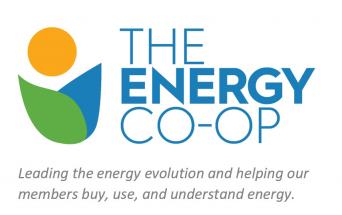
RNG: The Not-So Notorious Alternative to Fracked Natural Gas

Not all natural gas is created equal, as you may know if you’ve done any research on drilling and fracking. Renewable Natural Gas, or RNG, is an alternative product that eliminates many of the environmental risks associated with conventional natural gas. And The Energy Co-op can help you make the switch at your home or business.
The Energy Co-op, founded by Weavers Way in 1979, was the first supplier to offer RNG in southeastern Pennsylvania. Choosing to heat your home and cook with RNG not only helps reduce drilling and fracking, but furthers our mission of helping Philadelphians affordably and sustainably buy, use and understand energy as we transition to a carbon-free future.
RNG, like conventional natural gas, is mostly methane. But Renewable Natural Gas, also known as biogas or biomethane, is produced through the decomposition of organic materials at landfills or wastewater treatment facilities. When processed to concentrate its methane content, it can be used by homes and businesses just like conventional natural gas. It can also be used to generate electricity and power vehicle fleets, such as buses and garbage trucks.
Waste facilities — like the landfills through which The Energy Co-op supports its RNG program — are significant sources of methane emissions, which can be 30 times more potent than carbon dioxide.
Using RNG in your home employs energy that would otherwise be wasted. Many landfills and other waste handling facilities capture and “flare” methane by burning it. This releases it into the atmosphere without putting its energy to use. Our RNG program creates an incentive for landfills to use their biogas sustainably by capturing it and turning it into RNG. Supplying your home or business with RNG both decreases the demand for fracked natural gas and increases the demand for landfill biogas, putting readily available resources to good use and leaving the rest in the ground.
Not only is RNG sustainable and energy efficient, it’s also better for water quality. Unlike conventional natural gas, which is accessed through drilling and fracking that causes groundwater contamination, landfill methane collects near the surface and can be accessed safely. Choosing RNG protects water quality (and by extension, public health and safety) by reducing the demand for conventional natural gas accessed through dangerous methods. RNG is also a replenishable resource because it is the result of short-term decomposition of organic materials rather than the thousands of years it takes for fossil fuels like conventional natural gas to replenish. As long as organic waste is deposited in landfills or wastewater treatment facilities, the supply of RNG is infinite.
You can find additional information about The Energy Co-op’s RNG program at www.theenergy.coop.
